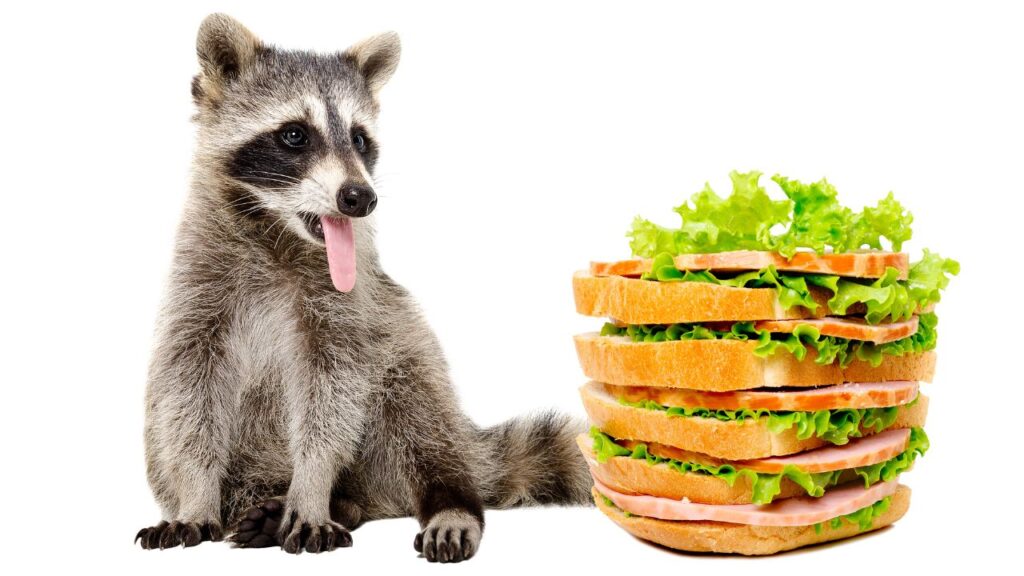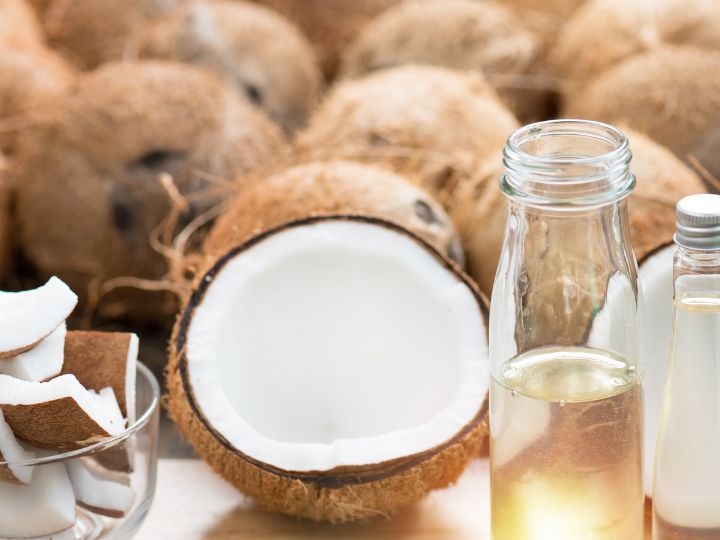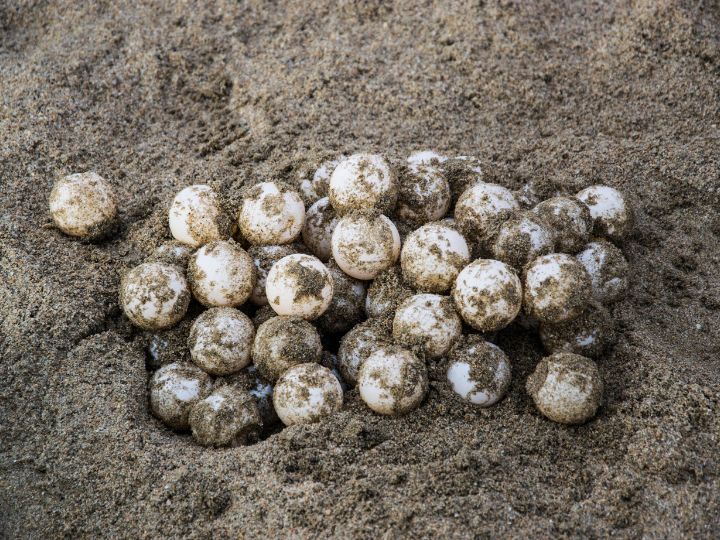Raccoons, nature’s little bandits with a reputation for mischief, seem to think they’ve hit the jackpot when they stumble upon a slice of bread. Although their natural diet tends to be more “trash-to-table” featuring whatever they can scavenge, these furry opportunists aren’t known for being picky eaters. So when the question arises: do raccoons eat bread? The answer isn’t as much a yes as it is, “Will a bear dance in the woods if it thinks no one is watching?”
These animals have adapted remarkably well to urban environments, where their diet has seen an expansion to include various human foods; bread included. It’s like a surprise buffet for them—trash cans, picnic baskets, and unattended campfires are all fair game. While bread is certainly not a superfood in the raccoon nutritional pyramid, it’s a case of carbs being carbs, and a raccoon’s gotta eat. But just because they can eat bread doesn’t mean they should—much like humans who can’t resist a late-night snack, even when they know better.
Raccoon Dining Habits
In the dark of the night, raccoons embark on epicurean adventures, often featuring unexpected menu items. With their nimble paws, they’re not picky eaters, but let’s see how bread fits into their nocturnal feasting.
Bread in the Wild Raccoon Diet
A wild raccoon’s diet is an all-you-can-eat buffet, but bread is not typically on Mother Nature’s menu. However, they won’t turn their little masked faces away if they find bread during their dumpster diving escapades. While carbohydrates like bread provide quick energy, they lack essential nutrients that raccoons require for a balanced diet.
- Where They Find Bread:
- Garbage bins: An all-time favorite for urban raccoons.
- Campgrounds: Leftovers from humans are often up for grabs.
- Bird feeders: Sometimes stocked with bread by well-meaning bird lovers.
The Verdict on Bread
So, should raccoons be eating bread? The truth is, bread is the junk food of the raccoon world. It’s tasty, sure, but it doesn’t offer the nutritional bonanza a raccoon needs to stay healthy. They fare better on a diet rich in proteins and fats, which they typically find in nuts, fruits, insects, and the occasional pizza slice (if they’re lucky).
- Nutrition Checklist:
- Protein: Insects, fish, rodents
- Fats: Nuts, seeds, the odd leftover burger
- Carbs: Fruits, and yes, the occasional slice of bread (but it’s not ideal)
In a pinch, bread will do, but these furry foragers are better off sticking to their natural smorgasbord.
Health Nut or Bread Buff
Raccoons are opportunistic feeders, which means they’re not fussy about skipping over a vegetable medley for a slice of sourdough. This section takes a peek into their dietary quirks, particularly focusing on their nutritional requirements and the love affair they seem to have with bread.
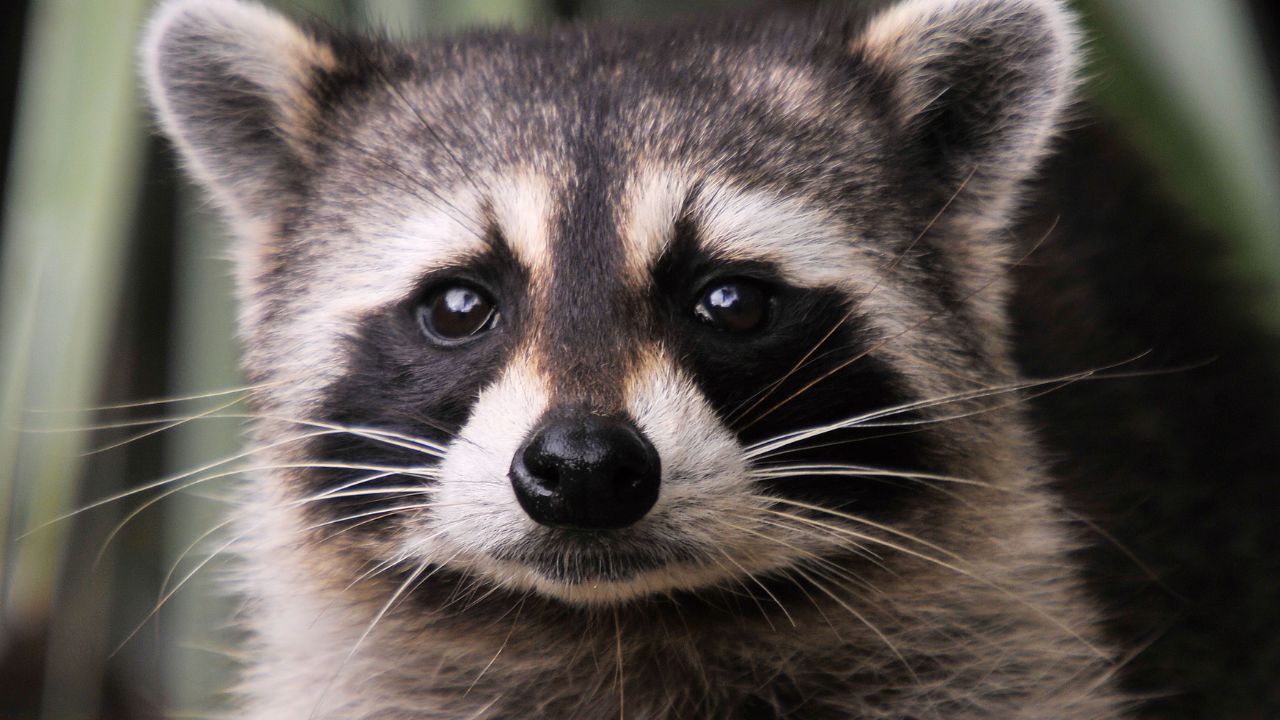
Nutritional Needs of Raccoons
These furry bandits are not just cute; they have complex dietary needs. Ideally, raccoons require a diet high in protein and fat to thrive. Their usual menu features an array of delicacies:
- Insects: A crunchy and satisfying source of protein.
- Fruits and Berries: For those with a sweet tooth and a need for vitamins.
- Small Rodents: A less appealing dish for the squeamish, but a protein powerhouse.
- Nuts: Nature’s snack pack, offering essential fats.
The Impact of Bread on Raccoon Health
Bringing bread to the raccoon’s banquet isn’t exactly a Michelin-starred move. Here’s why:
- Low Nutritional Value: Although they’ll chomp down on bread, it’s akin to junk food – minimal nutritional benefit.
- Digestive Troubles: Bread, especially when moldy, can lead to digestive issues. A raccoon digestion can handle a lot, but not always a loaf gone rogue.
- Obesity Risk: Just like humans, raccoons overindulging in bread can tip the scales, leading to overweight and related health issues.
Human-Raccoon Bread Encounters
Human and raccoon interactions often involve the furry bandits partaking in unintended picnics, especially when bread is involved.
Feeding Frenzies in Urban Areas
In urban landscapes, raccoons have become infamous for their dumpster-diving antics and late-night deli raids. They’re often seen snatching up bread items with such gusto, it’s like they’ve found the last loaf after an apocalyptic event. Observations include:
- Location Types: Alleys behind bakeries, public parks.
- Common Scavenged Items:
- White and whole wheat slices
- Discarded pizza crusts
- Bagels (plain and everything)
- Raccoon Tactics: Stealthy grab-and-go, comical tugging wars with larger bread items.
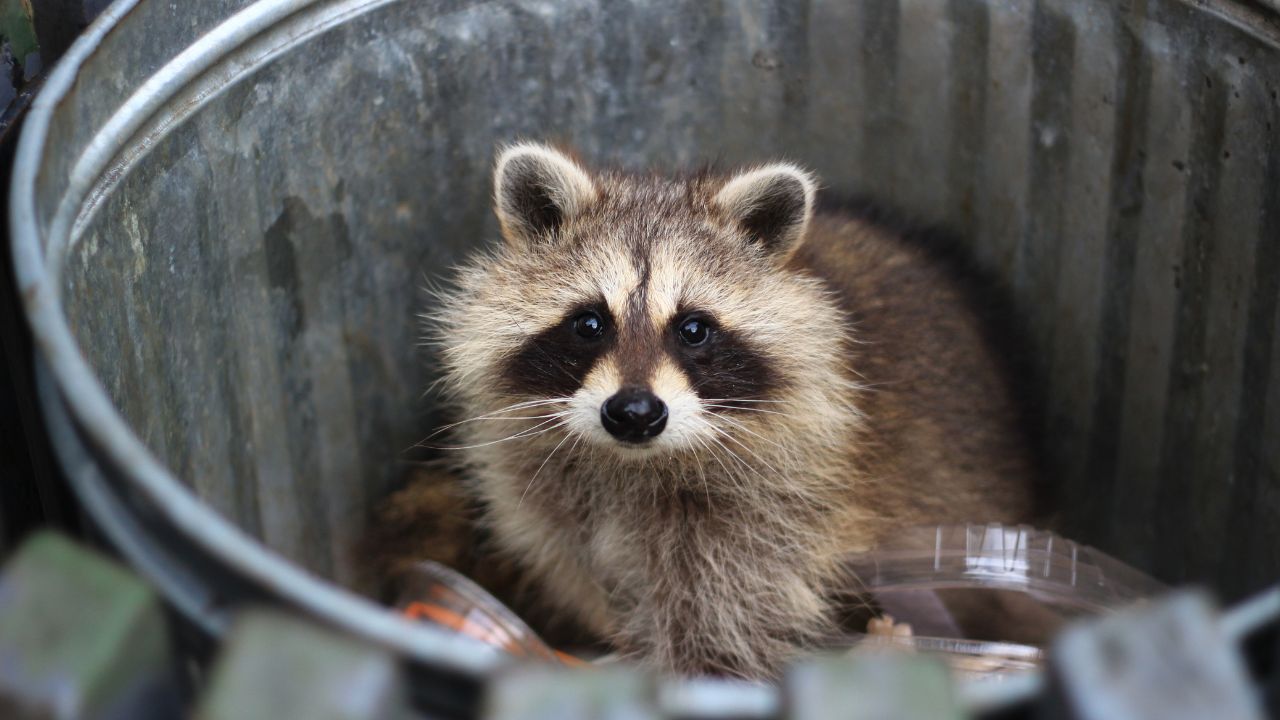
Risky Business: People Feeding Raccoons
Some humans find raccoons so irresistible that they can’t help but share their sandwiches. This practice, while seemingly cute, poses several risks:
- For Raccoons:
- Dependency on humans for food.
- Health issues from processed bread.
- For Humans:
- Encourages aggressive behavior in raccoons.
- Potential for spread of disease.
Feeding raccoons directly turns a harmless bread offering into a wildlife etiquette faux pas with real consequences.
Raccoon Culinary Preferences
Raccoons are the ultimate opportunistic eaters, displaying a penchant for a wide array of snacks, from twinkling trash treasures to the more refined natural nibbles.
Alternative Raccoon Delicacies
In the grand buffet of life, Procyon lotor doesn’t stick to a five-star menu. Here’s what their diet might include:
- Critters: Worms and insects are like fast food for these furry bandits—they’re quick, easy, and everywhere!
- Berries: They’ll forage for berries with the enthusiasm of a kid in a candy store.
- Acorns/Nuts: These are the crunchy snacks raccoons can’t resist. Think of them as nature’s potato chips.
- Fish and Frogs: Consider these the surf ‘n’ turf options at the raccoon riverside diner.
Bread vs. Natural Foods
When it comes to bread, raccoons are not fussy bakers:
- Bread: A doughy diversion — raccoons will scarf it down like it’s going out of style.
- Natural Foods: Given a choice, they’d likely swipe a fresh fish from the stream over a stale slice of sourdough.
| Preferences | Bread | Natural Foods |
|---|---|---|
| Taste | Mild amusement | Gastronomic glee |
| Nutrition | Questionable quality | Forest-fresh fitness |
| Fun | Bread bonanza | Foraging fiesta |
Their taste buds may enjoy the temporary novelty of human leftovers, but nature’s pantry provides the feast fit for a raccoon’s lifestyle.
Protecting Our Masked Munchers
While raccoons may seem like the perfect recipients for our leftover bread, their health says otherwise. They’re not on the prowl for a bakery.
Responsible Wildlife Feeding
Feeding raccoons can be like opening Pandora’s Box – cute at first, but a potential hazard in the long run. It’s pivotal to remember that human foods often don’t match the nutritional needs of wildlife. Here’s how one can responsibly feed these furry bandits, if they choose to do so:
- Quality over Quantity: Offer foods that are closer to their natural diet – think lean proteins, fruits, and insects.
- Infrequent: Make it a rare occasion, not a raccoon buffet night.
- Clean Up: Don’t leave leftovers around. This could attract other, less adorable critters.
Keeping Raccoons Wild and Healthy
When raccoons get a taste for Aunt Millie’s sourdough, it can lead to anthropogenic dietary habits. In other words, they become too accustomed to human food, which can be less nutritious and even dangerous for them. Here’s the remedy for keeping these critters in tip-top shape:
- Educate Your Neighbors: Share the knowledge that raccoons are better off with their natural diet.
- Garbage Management: Secure those bins! If they can’t get into human food, they won’t develop a taste for it.
- Contact Authorities: If you notice a raccoon that may be in trouble, call your local wildlife rescue. They’re like 911 for critter crises.
Frequently Asked Questions
Curiosity often strikes when dusk falls and the raccoons come out to play. These masked marauders have a diverse diet, but what about the weirder items on the menu?
What’s the deal with raccoons and dairy—can they munch on cheese?
Sure, raccoons can consume cheese, but it’s not exactly a health food for these critters. They lack the digestive enzymes to properly break down lactose, so dairy can lead to tummy troubles.
Is it fine to throw a pizza party for raccoons or should dairy be off the menu?
While the idea of tiny masks peeking from behind pizza slices is amusing, raccoons should not make a habit of dairy-laden diets. Pizza parties are better saved for human friends.
Could raccoons be the mysterious midnight bread bandits?
They absolutely could. Raccoons aren’t picky and will snack on bread if it’s available, although it’s not the most nutritious option for them.
Do raccoons have a five-star palate—what’s their all-time favorite grub?
Raccoons have an eclectic taste, but their top pick is often protein-rich foods like insects, eggs, and small critters. Trash cans are more buffet than fine dining for them.
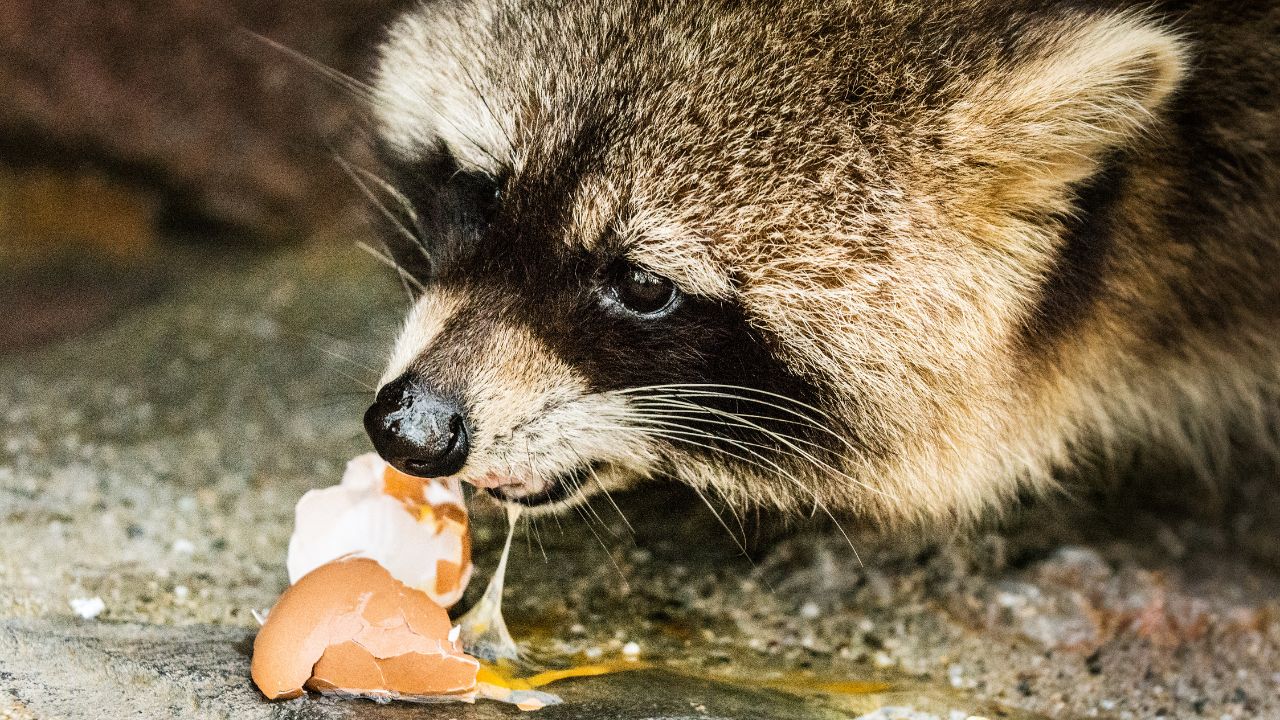
What’s the raccoon’s kryptonite—any foods they should totally avoid?
They should steer clear of chocolate, caffeinated beverages, and anything overly processed or high in sugar. Such foods can be harmful to raccoons.
Are raccoons down for a cat food feast or should they stick to their own menu?
While they won’t turn their noses up at cat food, it’s not ideal for their diet. Raccoons thrive best on foods they’d find in the wild, not from Fluffy’s bowl.
Becky is a fervent wildlife enthusiast and pet care expert with a diploma in canine nutrition. Her love for animals stretches beyond the domestic, embracing the wild tapestry of global fauna. With over a decade of experience in animal welfare, Becky lends her expertise to OutlandishOwl through insightful articles, captivating wildlife information, and invaluable guidance on pet nutrition. Her work embodies a deep commitment to understanding the intricate lives of animals and a passion for educating others on sustaining natural habitats. Becky's hands-on conservation efforts and her knack for translating complex dietary science into practical pet feeding tips make her an indispensable voice for creatures great and small.

